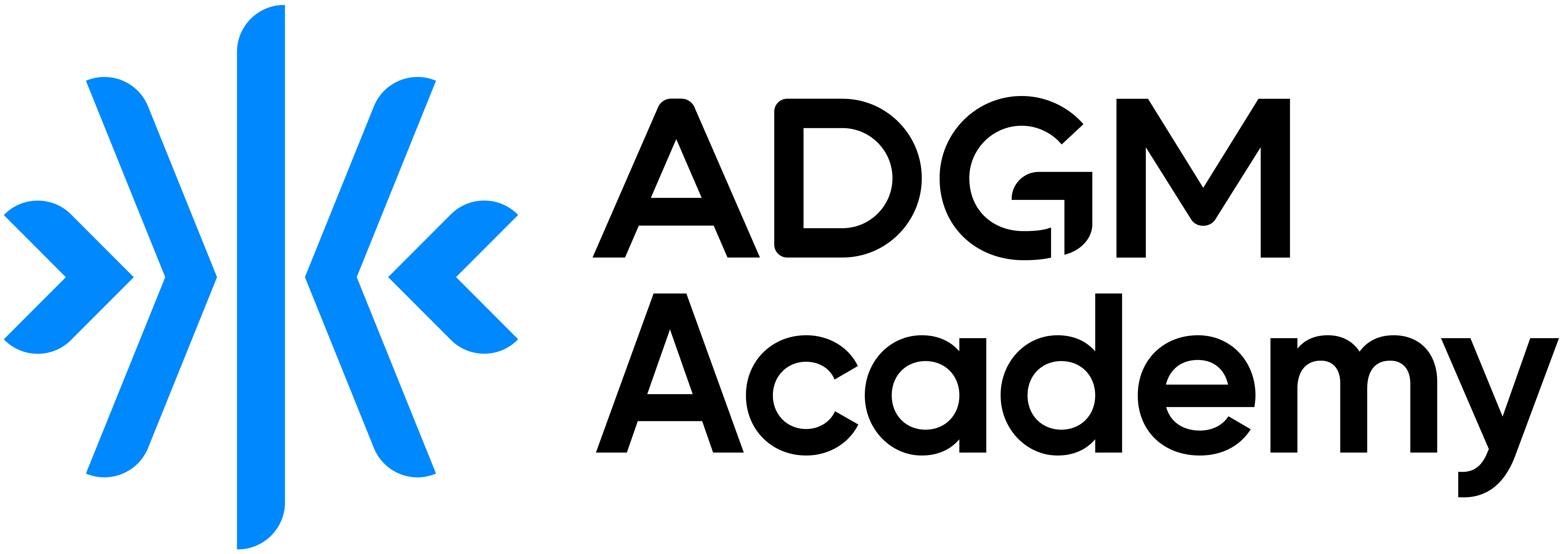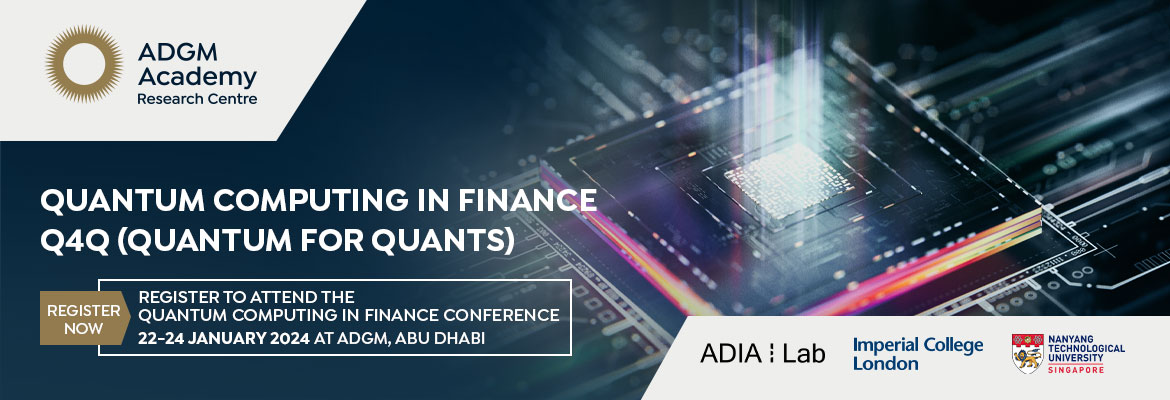
Event Agenda: 24 January 2024 – Day 3
| Time | Agenda |
|---|---|
| 08:30 - 09:00 |
Registration |
| 09:00 - 09:05 |
Welcome address Speaker: 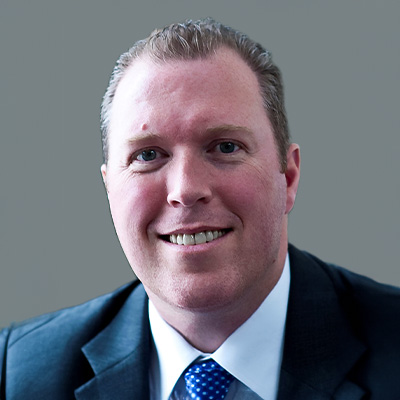
Peter WareHead of Research & Development | ADGM Academy Research Centre My mission is to bring academic insight and new perspectives into the finance sector. With more than 35 years working in Toronto, Boston, London and Abu Dhabi, I understand the challenges and opportunities facing the financial services. As a committed evangelist for education, I foster revolutionary collaborations and programmes that unite the latest academic research with financial services in the pursuit of a safer, more secure and transparent, better automated and more effective industry. At ADGM Academy Research Centre we bring together an ecosystem of academics, financial industry practitioners, regulators and technology experts to unlock the shared potential to improve the financial environment in the UAE and beyond. The financial industry continues to transform at a rapid pace with new technologies, disruptors, threats and opportunities appearing all the time. Independent research is crucial to be able to understand and utilise this transformation for the benefit of your business, your customers and society in general. ADGM Academy’s Research Centre provides that understanding through insights from academia. We have built a library of research papers, articles and thought leadership content on our website. And we host educational and networking events to bring you face to face with researchers and thought leaders from around the world. |
| 09:05 - 09:10 |
Day 2 Wrap-up Speaker: 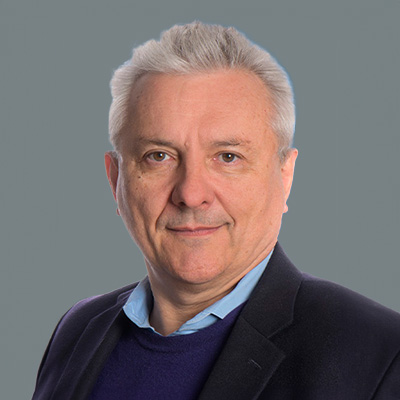
Horst SimonDirector | ADIA Lab Dr. Horst Simon is a globally recognized expert in the development of parallel computational methods, with a specialization in sparse matrix algorithms and large-scale eigenvalue problems, boasting 40 years of experience in the sector. He recently became the inaugural Director of ADIA Lab in 2022, a leading institution dedicated to pioneering research and innovation in the field of computational and data science. Before this, he held various prominent positions at Berkeley Lab since 1996, significantly contributing to energy innovation and fostering close collaborations between national labs and the industry. Dr. Simon has also worked with esteemed organizations such as Boeing, SGI, NASA Ames, and renowned universities like Stony Brook and UC Berkeley. His commendable work has earned him prestigious recognitions including two Gordon Bell Prizes in 2009 and 1988, the ACM SC Test of Time Award, and the SIAM CSE Career Award. He is a significant figure in the high-performance computing community, involved in the biannual publication of the TOP500 list of the most powerful supercomputers and is a distinguished SIAM Fellow. |
| 09:10 - 09:50 |
Bringing useful quantum computing to the world More than seven years back we have made quantum computing available through the cloud for the first time. Since then, a continuous stream of technical breakthroughs and improvements on the hardware as well as on the software and algorithm level has been demonstrated to build up a full stack quantum computer. Currently, they are conquering a place in the data and high-performance computing centers. We have stepped up from IBM Quantum System One to IBM Quantum System Two enabled by significant technical achievements, have pushed scale, quality, and speed to the next level, developing a quantum-centric supercomputing architecture and performant software capabilities. For example, we increased the scale to an enormous number of 1121 qubits on a single quantum processor and showed a path to further scaling by modularity. Concomitantly, speed and quality have been increased to boost overall performance. In this presentation I will give an overview of what we have achieved across the quantum computing stack and share our extended roadmap to further advance the Era of Quantum Utility. Speaker: 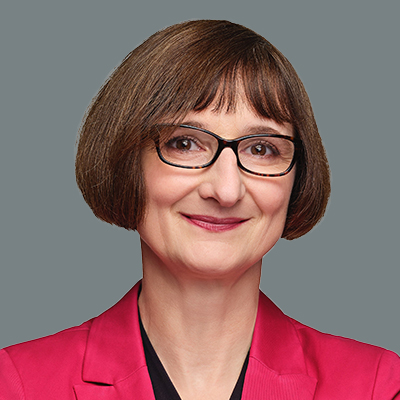
Heike RielIBM Fellow, Head Science & Technology, Lead IBM Research Quantum Europe / Africa | IBM Dr. Heike Riel is IBM Fellow, Head of the Science & Technology, and Lead of IBM Research Quantum Europe & Africa. She leads the Science of Quantum & Information Technologies department aiming to create scientific and technological breakthroughs in Quantum Computing and Technologies, Physics of Artificial Intelligence, Nanoscience and Nanotechnology and to explore new directions to computing. She is a distinguished expert in semiconductor electronic and optoelectronic devices, nanotechnology and nanosciences and focuses her research on advancing the frontiers of information technology through the physical sciences. She received the master’s in physics from the Friedrich-Alexander University of Erlangen-Nürnberg and the PhD in physics from University of Bayreuth and an MBA from Henley Business College. She has authored more than 155 peer-reviewed publications and filed more than 50 patents. She has received several prestigious honors, e.g., elected member of the Leopoldina – German National Academy of Sciences and the Swiss Academy of Engineering Sciences; she was awarded the APS David Adler Lectureship Award in the Field of Materials Physics, the Applied Physics Award of the Swiss Physical Society, and the 2022 IEEE Andrew S. Grove Award. She was honored as Fellow of the American Physical Society, and with an honorary doctorate by Lund University. In February 2022 she was elected to the National Academy of Engineering. |
| 09:50 - 10:30 |
Quantum Optimization: Potential and Challenges Quantum computing could revolutionize numerous areas in business and science, with optimization often named as a prime candidate to profit from such a revolution. This follows from the fact that optimization problems are ubiquitous, and therefore, any improvement over the state-of-the-art classical algorithms with quantum computers could have a huge impact. Moreover, these improvements could occur across multiple dimensions, such as solution quality, solution diversity, time to solution, and cost to solution. But just how tangible are the benefits of quantum optimization? Grover’s Search algorithm and Quantum Adiabatic Annealing provided a promising start, but it has become clear that more tools are needed to demonstrate near-term benefits in optimization problems. We give an overview on the state of affairs, especially looking at NP-hard combinatorial optimization problems, like, e.g., portfolio optimization. Speaker: 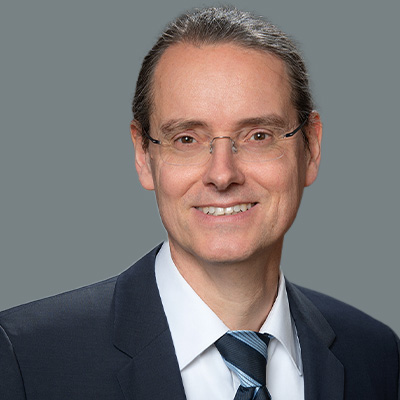
Thorsten KochHead of the Applied Algorithmic Intelligence Methods and the Digital Data and Information for Society, Science, and Culture Departments | Zuse Institute Berlin Prof. Dr. Thorsten Koch is Professor for Software and Algorithms for Discrete Optimization at TU-Berlin and head of the Applied Algorithmic Intelligence Methods and the Digital Data and Information for Society, Science, and Culture departments at the Zuse Institute Berlin (ZIB). He has worked in several areas, especially the planning of infrastructure networks, chip verification, mathematical education, and integer optimization. From 2000-2020 he led the efforts on developing Integer Programming Solvers at ZIB, including the SCIP development. From 2008-2014 he was the coordinator of the FORNE project, an industry collaboration project regarding gas transportation involving five universities and two research institutes. The project received the 2016 EURO Excellence in Practice Award of the European OR Society. From 2013-2019 he was head of the GasLab and the SynLab within the Research Campus MODAL (Mathematical Optimization and Data Analysis Laboratory). The project Optimized Execution of Dispatching became finalist of the 2020 INFORMS Innovative Applications in Analytics Award. Currently, the work is focused on developing high-performance parallel methods for solving large-scale structured optimization problems. This includes high-performance solvers for Steiner Tree Problems in Graphs (STPG) and Quadratic Unconstraint Binary Optimization (QUBO). |
| 10:30 - 11:00 |
Coffee Break |
| 11:00 - 11:30 |
Quantum-enhanced machine learning using processors engineered with atomic precision Physical reservoir computing is a machine learning technique that uses the fixed dynamics of some complex dynamical physical system as a mapping to a higher-dimensional feature space. Reservoir computing is expected to enhance the financial sector by capturing temporal dependencies in historical data, facilitating accurate predictions, risk assessments and decision-making that consider the sequential nature of market dynamics. Due to their robustness to noise and relative ease of implementation, reservoir computing implemented in quantum systems are an exciting prospect for near-term intermediate-scale quantum processors, with theoretical studies outperforming equivalently sized classical reservoirs stemming from the expanded size of the computational Hilbert space. In this talk we will show how to leverage atomically precise manufacturing of atoms in silicon to realise quantum enhanced machine learning. By working in two control regimes, we can implement both an extreme learning machine and a reservoir computer with fading memory. These results indicate an exciting avenue for achieving a potential quantum advantage using near-term analogue systems for financial machine learning tasks. Speaker: 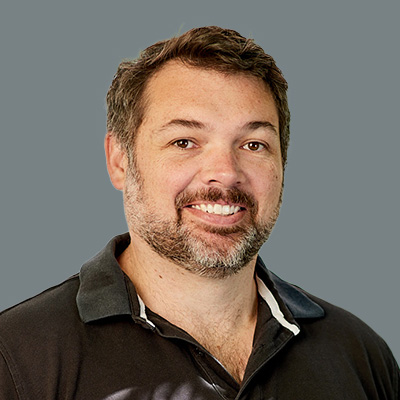
Casey MyersAlgorithms and Applications Lead, Silicon Quantum Computing | University of New South Wales Casey is the Quantum Algorithms and Applications Team Lead at Silicon Quantum Computing (SQC). He is a respected expert in quantum algorithms and the theory of quantum systems. He has over 15 years' experience working in the quantum technologies sector, as both a researcher in the deep tech industry and an academic, pioneering quantum algorithms for both optical and solid-state architectures. The key question that drives Casey's work is what difficult problems can a quantum computer solve? Which areas of industry could benefit from the advantage that a quantum computer is expected to provide? |
| 11:30 - 12:00 |
Quantum cryptography: keeping secrets over the long term Cryptography is an essential but invisible component of our modern world, keeping private information private and safeguarding our communications in an increasingly digitized landscape. Accelerating development in the field of quantum computing threatens to compromise many of the encryption mechanisms in use today. In this talk I will outline the ways in which we can use quantum technologies to secure our networks against unlimited computational power, and showcase the systems and devices which my team at TII is building to achieve this. Speaker: 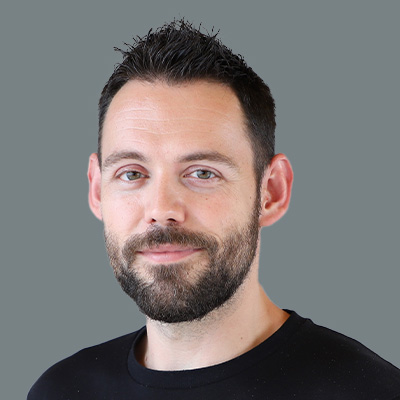
James GrieveDirector of Quantum Communications | Technology Innovation Institute Dr James A. Grieve is the Senior Director of Quantum Communications at the Technology Innovation Institute in Abu Dhabi. Since gaining his PhD from the University of Bristol, Dr Grieve has accumulated a decade of experience in experimental quantum optics, including industrialization activities in quantum key distribution. His team in Abu Dhabi builds practical, industry-focused systems to bring quantum-backed security to the wider market, with a activities in quantum key distribution, quantum random number generators and satellite-based quantum communications. |
| 12:00 - 12:30 |
Quantum computing and quantum communications in the financial industry The talk describes the state of the art of quantum computing for finance, focusing on the research work conducted by the quantum computing team at JPMorgan Chase in the area of quantum algorithms and applications for financial use cases. We will highlight recent theoretical and experimental advances in quantum optimization and machine learning, including the recent demonstration of a quantum scaling advantage for the Quantum Approximate Optimization Algorithm (QAOA). Speaker: 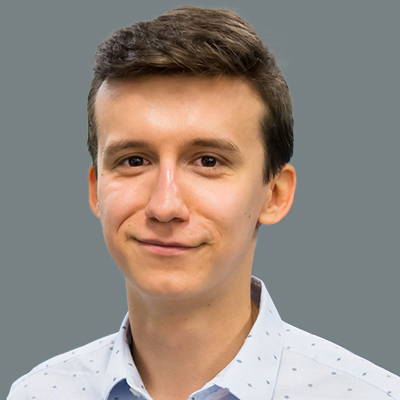
Dr. Ruslan ShaydulinVice President - Applied Research Lead | JPMorgan Chase & Co. Ruslan Shaydulin is a quantum algorithms researcher at the Global Technology Applied Research center at JPMorgan Chase. Ruslan’s research centers on applying quantum algorithms to classical problems, with a focus on optimization and machine learning. Prior to joining JPMorgan Chase, Ruslan was a Maria Goeppert Mayer fellow at Argonne National Laboratory. |
| 12:30 - 13:30 |
Lunch |
| 13:30 - 14:00 |
Towards a quantum geometric framework to understand generalization in quantum machine learning Generalization is the ability of machine learning models to make accurate predictions on new data by learning from training data. Recent work uncovered that uniform generalization bounds, the common approach to understand generalization, often fail to explain quantum machine learning. Here, we introduce the data quantum Fisher information metric (DQFIM) to understand generalization. For variational learning of unitaries, the DQFIM accurately quantifies the circuit parameters and training data needed to successfully train and generalize. Surprisingly, a constant number of training states can already be sufficient for generalization, showing that quantum machine learning can succeed even for very few data. Finally, we uncover two counter-intuitive phenomena in quantum machine learning: First, while symmetries have been believed to improve learning, we show that data without symmetries can be better for generalization. Second, we find that out-of-distribution generalization, where one trains with data drawn from a different distribution than the test data, can be better than using the same distribution for both training and testing. Our work provides a powerful framework to explore the power of quantum machine learning models. Speaker: 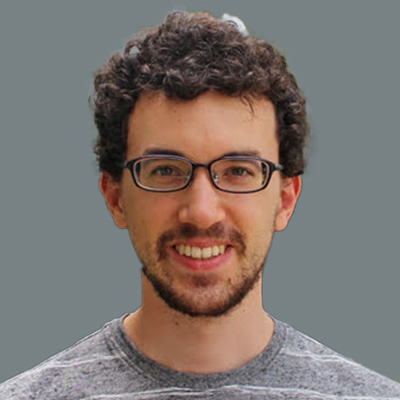
Tobias HaugSenior Researcher | Technology Innovation Institute Dr Tobias Haug is a Senior researcher on quantum algorithms at TII in Abu Dhabi. He received his PhD from the Centre for Quantum Technology in Singapore in 2021. During his PhD he worked at NTT in Japan and Entropica Labs in Singapore. After his PhD he was a postdoctoral researcher at Imperial College London. |
| 14:00 - 14:30 |
Preparing for the Most Complex Upgrade Ever This talk will discuss how to prepare for the most complex upgrade ever, as the Quantum threat is forcing us to upgrade all cryptography systems globally. We can’t leave anything out, and it takes all of us working together to do so. I will build on previous talks with banks about how to get the CEO’s to take action. The bottom-up approach does not work, so we need to focus on regulators to force banks to act. Will present his view on who, when, how long things could take, and why and what needs to be done in order to prepare for the Y2Q, and did people think about the unix end-of-time which happens in 2038? A lot of resources are needed in the coming years. Speaker: 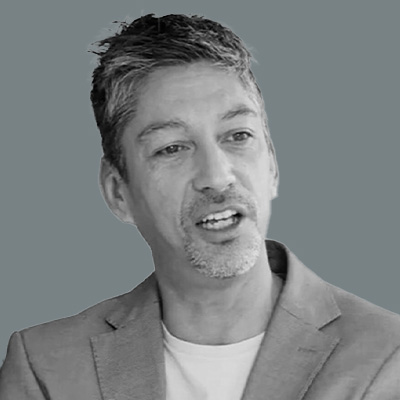
Dimitri van EschFounder / Chair | Quantum Gateway Foundation Dimitri has worked in the IT and cybersecurity industry since the early 90s, with XS4ALL / KPN, PostNL, Telegraaf and others, building complete internet environments, digital newspapers, managing networks, security systems and developing new cloud services, platforms and apps. After a decade of working in several startups Dimitri joined ABN AMRO in 2018 where he initiated and managed ABN AMRO’s Quantum Program to define and design the potential of Quantum technology for finance. Dimitri is the main author of ABN AMRO’s Key Orchestration Protocol patent, a unique key management system designed to be Quantum resilient and makes use of a hybrid combination of Quantum and non-Quantum technology in the field of cybersecurity. Dimitri is currently the Chair/CEO and one of the founders of Quantum Gateway Foundation where he brings a broad skillset of being a technology wizard, architect and consultant, and has a good level of managerial, business and presenting skills. |
| 14:30 - 15:00 |
Quantum Algorithms for the Pathwise Lasso We present a novel quantum high-dimensional linear regression algorithm with an $\ell_1$-penalty based on the classical LARS (Least Angle Regression) pathwise algorithm. Similarly to available classical numerical algorithms for Lasso, our quantum algorithm provides the full regularisation path as the penalty term varies, but quadratically faster per iteration on the number of features/predictors $d$ and the number of observations $n$ under specific conditions. Speaker: 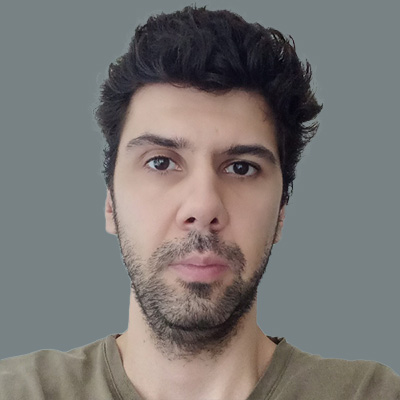
João DoriguelloPostdoctoral Researcher | Centre for Quantum Technologies, National University of Singapore João Doriguello did his PhD at the University of Bristol from 2016 to 2021 under the supervision of Prof. Ashley Montanaro and since 2021 is a postdoctoral researcher at the Centre for Quantum Technologies in the National University of Singapore working with Prof. Miklos Santha. |
